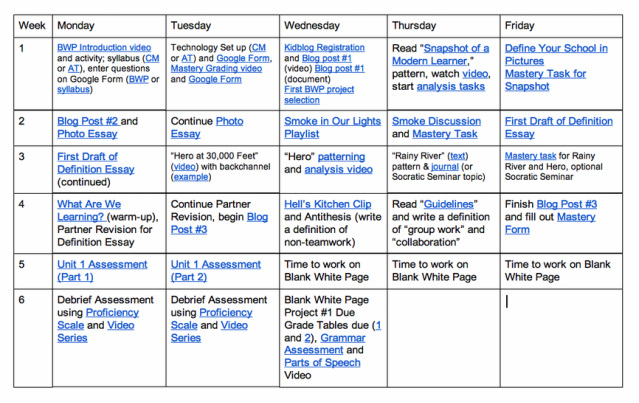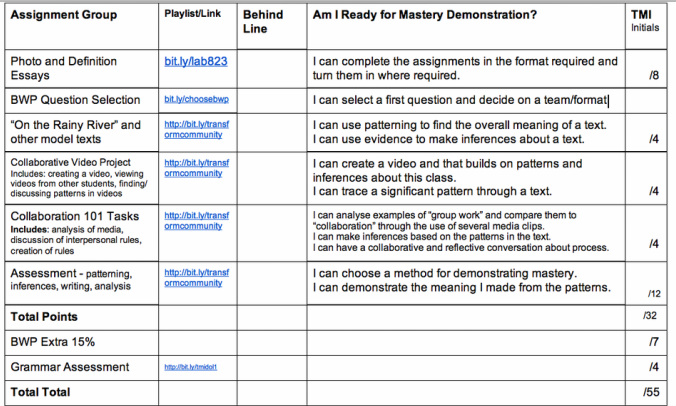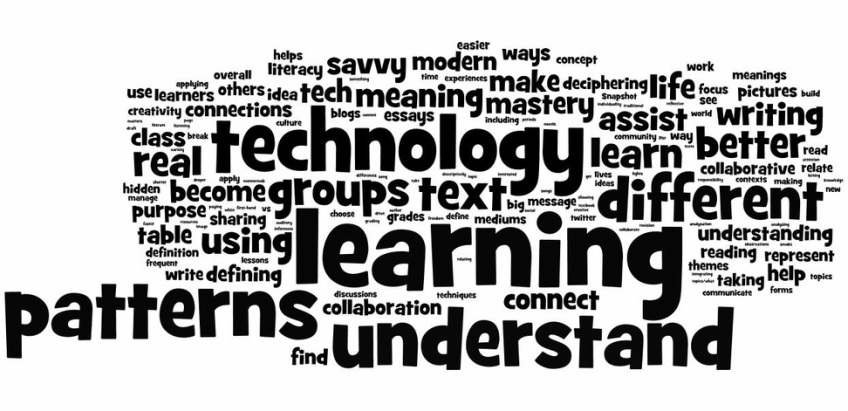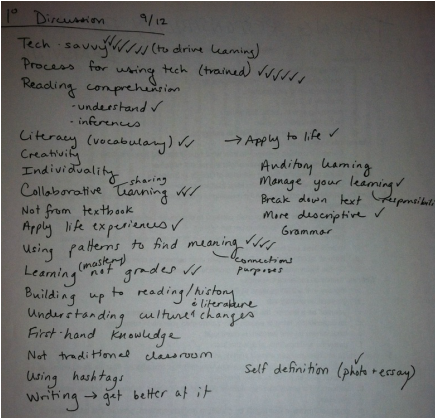Just.
Aren't.
Getting.
It.
They fight back against the newness of flipclass, they fight back against the demand that they take responsibility, they fight back against the level of thinking we ask them to do, or they just fight because they don't know what we want of them.
And as frustrating as all of that is, they are not the problem.
We are.
I can't tell you about your classroom, but I can tell you about mine, and a little bit about Andrew's, because those are the only two I've seen from experience. The "we" and "our" from this point on refers to both Andrew and I.
The problems:
1. We jumped in full force. Our students went from knowing nothing about us or our class to being full flipped mastery, Explore-Flip-Apply, student-centred, higher order thinking, asynchronous, etc. Since we were both new to the school, we couldn't even pull on our former students and our ethos to protect us from the backlash against everything we were doing. So we just assumed they would trust us. And many did, but some didn't.
2. Lots has changed from the first day. We didn't have enough organisation, especially around how we managed/used technology. They were confused and frustrated, and arguably still are.
3. We had curriculum, but it was in progress and brand new to both of us. We didn't know what to expect when we were planning over the summer, so we did our best. But there were SO many things we couldn't have expected or planned for. So we were/are unprepared.
4. We forgot just how much we know and have gotten used to. Our kids had never blogged, used Twitter, had two teachers, watched videos for instruction, used backchannels, used Edmodo, etc. Every time we talk about our flipped class with newbies, it reminds us of how much we take for granted, and how unique our class really is. But we didn't give our students the same schema so they feel lost, confused, and frustrated.
5. We want them to love our class and how we teach it. And when they don't, it makes us question if we're doing the right thing. Which makes it worse.
6. We didn't scaffold them up to the release of responsibility - we just believed that they would "get it" along the way. Even though we were teaching skills slowly, and building their technology skills slowly, we still expected them to be able to keep track of their work and progress.
***
Yes, our students bear some fault. But it's still our responsibility.
I don't know what the answer is, except that we are the problem.
The honest truth is that there are some things that are more important than what happens in our classrooms. And without going into too much detail, we have had a lot on our plates outside of our teaching.
But This is the Truth:
- Our students need help to see the roadmap we've written. They can't see the connections, and they can't understand why things have to change. But they trust us to teach them what they need to know. And they keep turning up. So we need to do better. We need to be better.
- There is no situation beyond redemption. We always have another chance. If we have a bad day, our kids will give us another chance, so long as we are honest and transparent with them. It's never as bad as we think it is, and never as good as we think it is. And each day starts new.
- Teaching, just like friendship, is a commitment. We can't just give up because we don't feel like it. When it gets difficult, we have to press in to our community. And we have to trust that our community will help us, even when we don't know what we need.
And so the only way we can find our way out of this mess is by working together. We need to find ways to introduce our students to the radical shift in educational models. We need to find a bridge from the factory model to the student-centred, higher level thinking flipped mastery asynchronous whatever that we're heading towards.
So if it's a mess in your room, and your students aren't able to take the responsibility required to function in a flipped class, let's start a conversation. We don't have any answers.
But we believe that together, we can make it work.






 RSS Feed
RSS Feed
